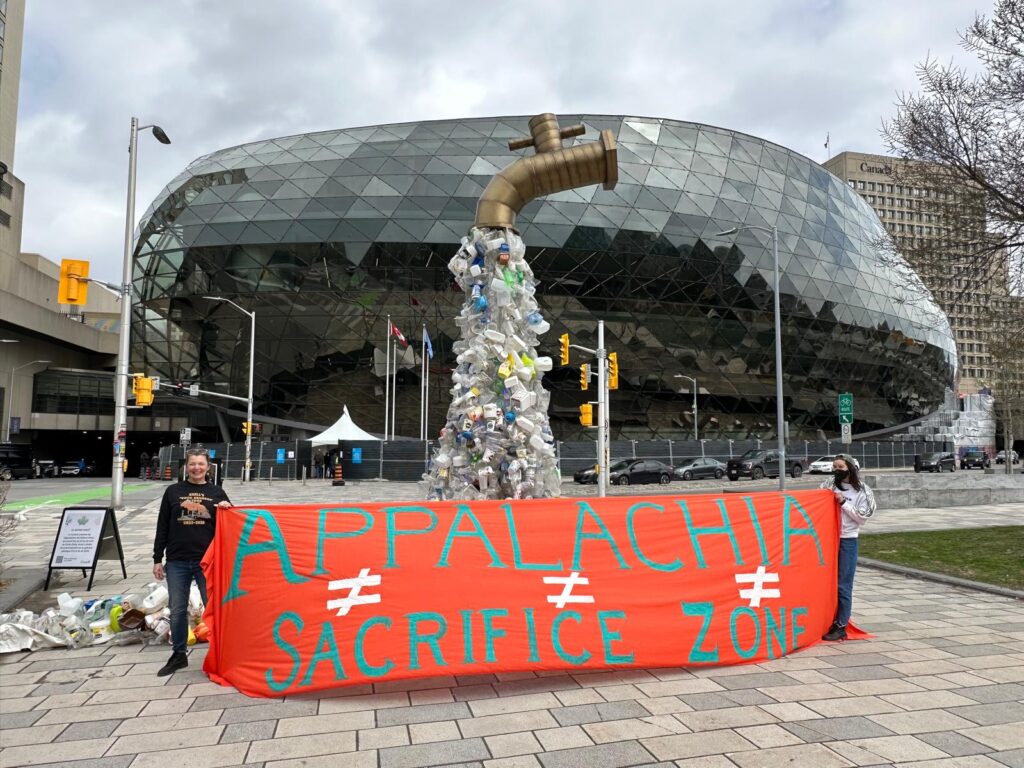|
Getting your Trinity Audio player ready...
|
Today marks the 54th Earth Day and one day until countries begin negotiations on the Global Plastics Treaty at INC-4. Earth Day was first celebrated in 1970 with millions of people across the United States taking action in response to rampant pollution and other environmental destruction.
By the end of 1970, the power generated by the mass mobilizations of that first Earth Day led to the creation of the United States Environmental Protection Agency and the passage of other first-of-their-kind environmental laws, including the National Environmental Education Act, the Occupational Safety and Health Act, and the Clean Air Act.
Change has always come from people power. This year, Earthworks and allies across the world came together at the March to End the Plastic Era to demand an ambitious plastic treaty at INC-4 in Ottawa, Canada. The Global Plastics Treaty is a pivotal “make or break” moment to establish a legally binding instrument to rid the world of plastic pollution across the full life cycle.
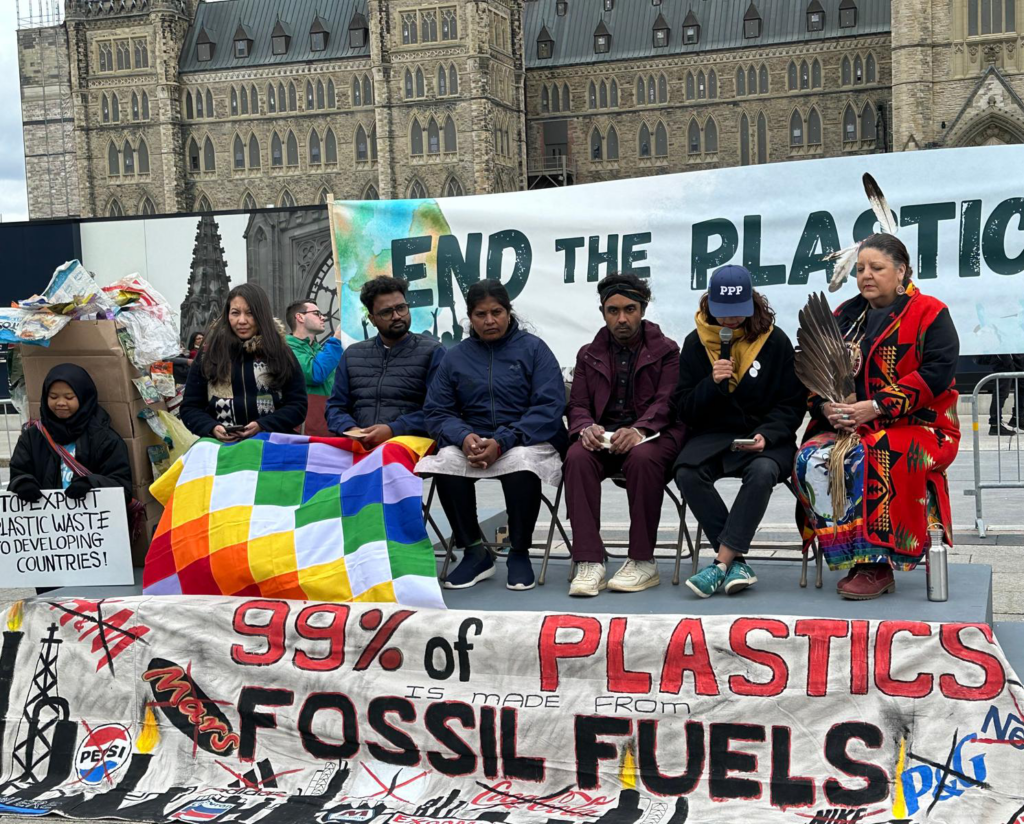
First Nations and Indigenous leaders, frontline community groups, climate activists, youth leaders, healthcare professionals, waste-pickers, environmental advocates, scientists, and global allies from across civil society coming from all continents rallied together and marched from Parliament Hill to Shaw Center to deliver a unified message: The pollution from the entire plastic lifecycle threatens human life and our fundamental rights to health and the environment, including significant contributions to the climate crisis — especially for Black, Brown, Indigenous, frontline, and under-resourced communities, particularly in the Global South.
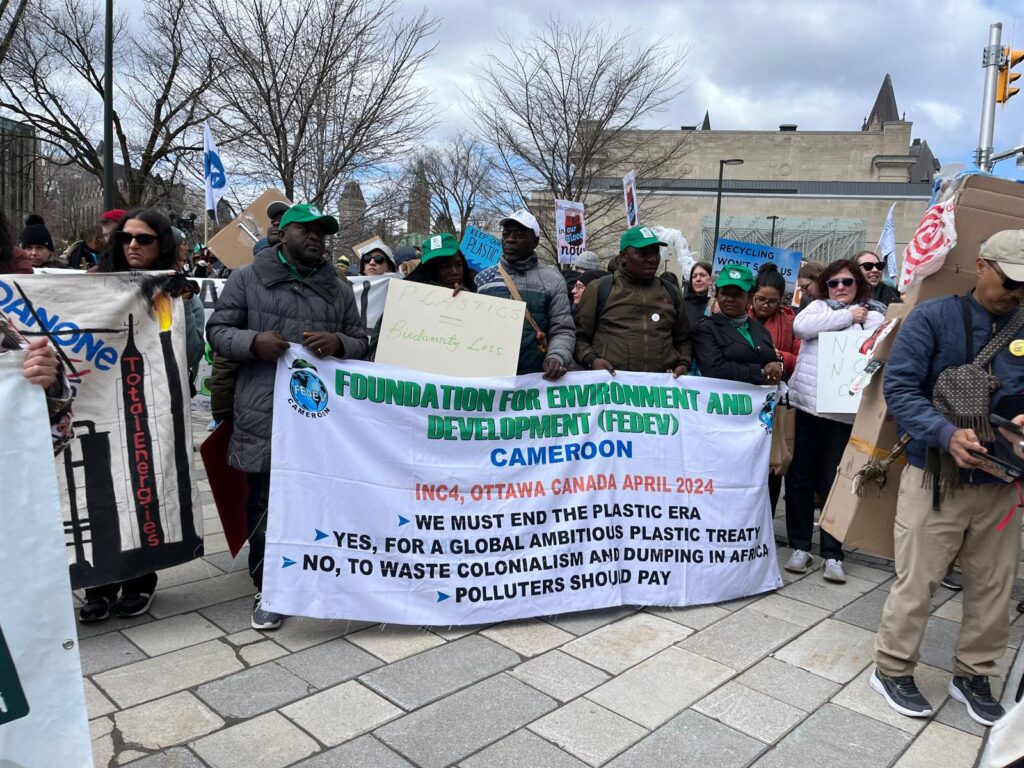
Speakers uplifted 12 key demands for delegates to ensure justice in a global treaty from the communities on the frontlines of fossil fuel extraction to those in the Global South who are being polluted by continued waste colonialism. They emphasized that we must follow the waste hierarchy in any approach to addressing the plastics crisis: prevention, re-use, recycling, recovery, and finally disposal to ensure we place our emphasis on turning off the tap — not false solutions.
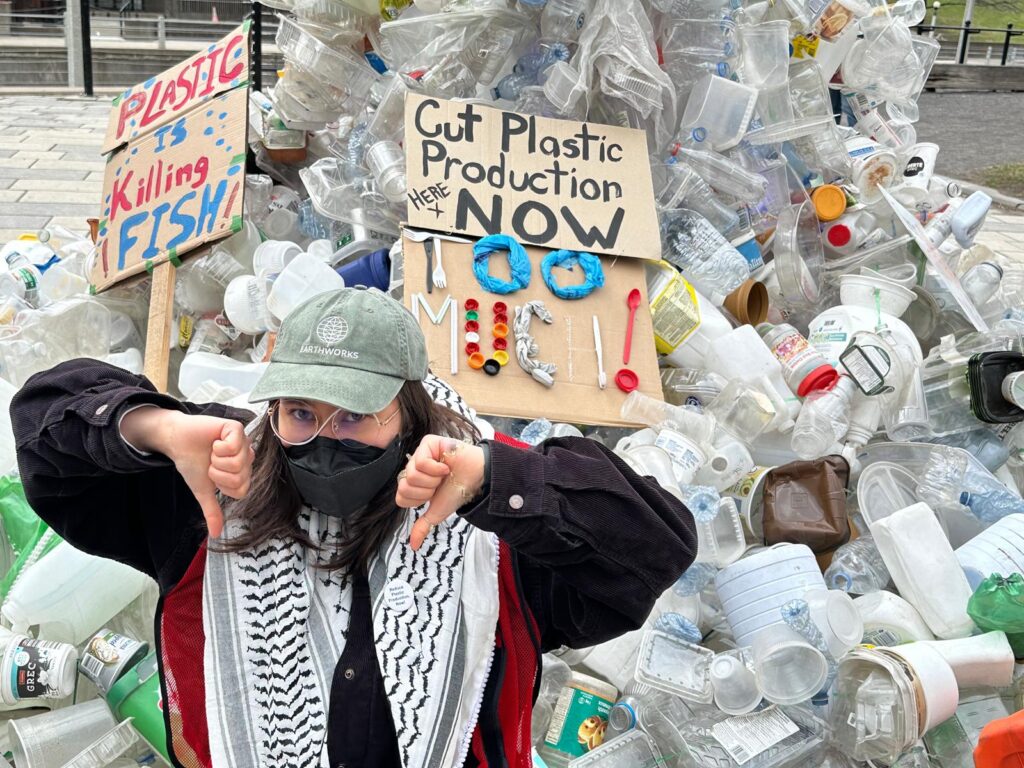
The plastics crisis has become one of the defining environmental issues of our lives and the fight to stop the plastics crisis is inherently linked with our fight for a livable planet. As the world moves from depending on fossil fuels to renewable energy, the corporations that profit from extraction panicked. Petrochemicals and plastic became a lifeline to continued profit for the fossil fuel industry as 99% of plastic comes from fossil fuels.
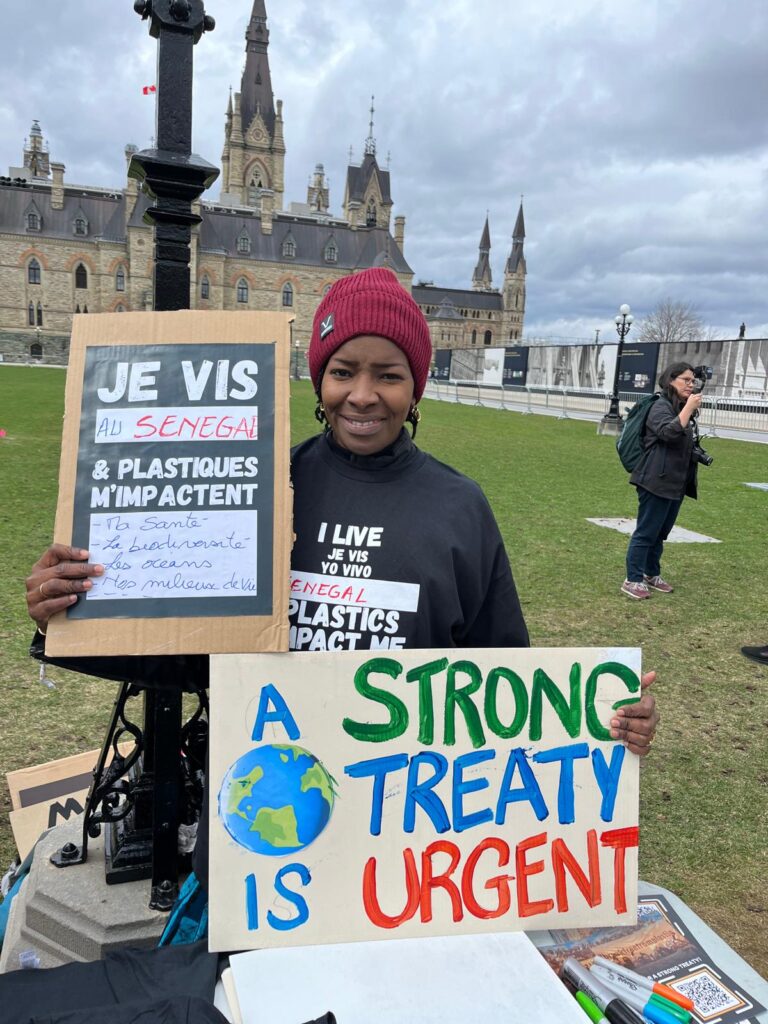
Tomorrow, delegates from countries around the world will begin the fourth negotiations on the Global Plastic Treaty. As fenceline residents reminded us yesterday, a meaningful plastic treaty must limit plastic production. The plastics crisis impacts everyone across the globe in different ways, from the fracking in Appalachia to the waste-pickers in Indonesia and all of these things must be meaningfully addressed in a high ambition treaty.
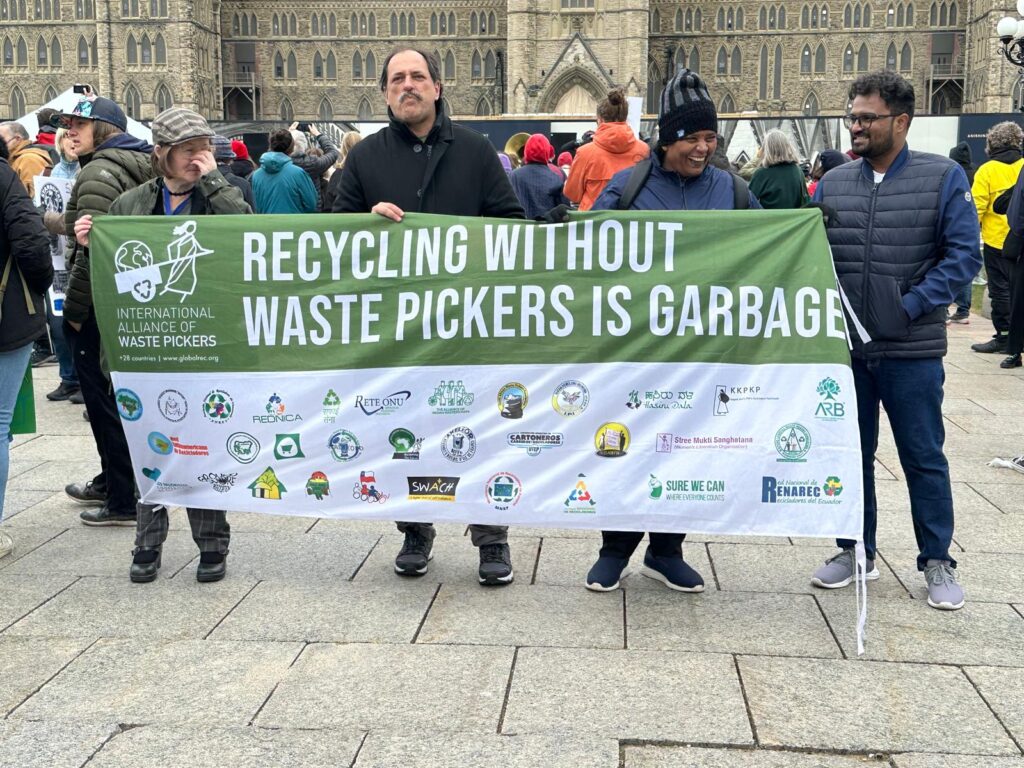
We honored the spirit of the first Earth Day to once again mobilize in mass to demand our leaders meet the environmental crisis of our lives. Over the next week it is the duty of delegates to negotiate a strong and ambitious plastics treaty and embody the theme of this year’s Earth day – Planet Vs. Plastic.

